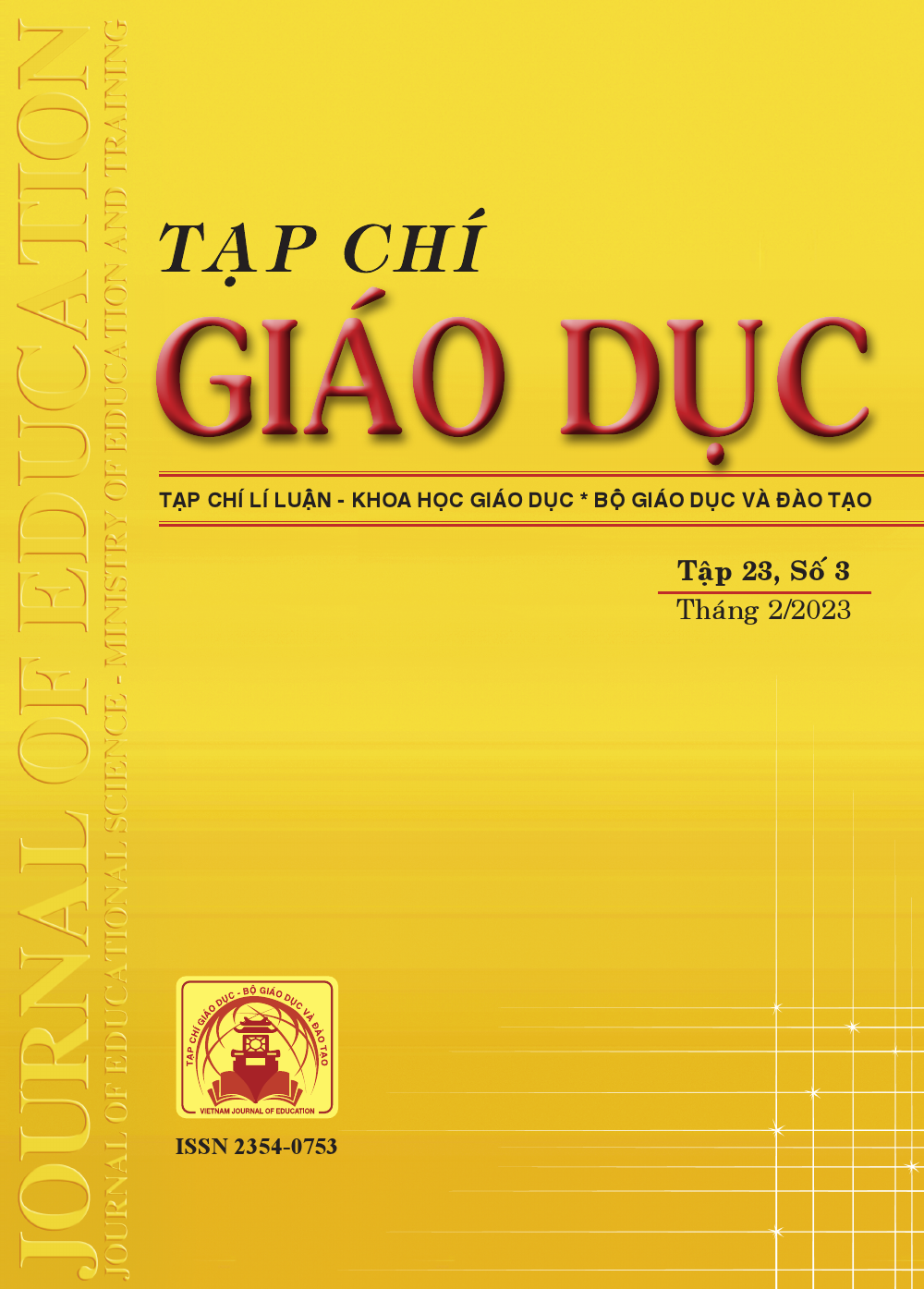Nhận thức và kết quả học tập của sinh viên thông qua mô hình học đảo ngược: nghiên cứu trường hợp sinh viên không chuyên tiếng Anh tại Trường Đại học Vinh
Tóm tắt
With the advancement of science and technology, teachers can easily share learning materials, increase interactions between teachers and students through flipped classrooms - a form of teaching that has attracted much attention from educators and researchers. This article aims to examine Vinh University students' perception of the flipped learning environment and explore the effect of this method on their academic achievement. Quantitative and qualitative research methods were used in this study. We have collected data through an online questionnaire survey on a sample of 102 non-English majors studying at Vinh University. The results obtained from the questionnaires, observations and interviews show that the flipped classroom model was effectively used at Vinh University, suitable with the needs of students at the university level, developing their self-esteem, their higher-order thinking and problem-solving skills. The students were satisfied with the teaching in the flipped classroom and demonstrated improvements in metacognition and self-oriented learning.
Tài liệu tham khảo
Ahmed, H. O. K. (2016). Flipped Learning As A New Educational Paradigm: An Analytical Critical Study. European Scientific Journal, 12(10), 417-444.
Beatty, B. J., & Albert, M. (2016). Student perceptions of a flipped classroom management course. Journal of Applied Research in Higher Education, 8(3), 316-328. https://doi.org/10.1108/JARHE-09-2015-0069
Bergmann, J., & Sams, A. (2012). Flip your classroom: reach every student in every class every day. International Society for Technology in Education.
Davies, R. S., Dean, D. L., & Ball, N. (2013). Flipping the classroom and instructional technology integration in a college-level information systems spreadsheet course. Educational Technology Research and Development, Educational Technology Research and Development, 61(4), 563-580.
Eichler, J. F., & Peeples, J. (2016). Flipped classroom modules for large enrollment general chemistry courses: A low barrier approach to increase active learning and improve student grades. Chemistry Education Research and Practice, 17, 197-208.
Ghufron, M. A., & Nurdianingsih, F. (2021). Flipped classroom method with Computer-Assisted Language Learning (CALL) in EFL writing class. International Journal of Learning, Teaching and Educational Research, 20(1), 120-141.
Hertz, M. B. (2012). The Flipped Classroom: Pro and Con. http://www.edutopia.org/blog/flipped-classroom-pro-and-con-mary-bethhertz
Li, L., Yang, S. (2021). Exploring the influence of teacher-student interaction on university students’ self-efficacy in the flipped classroom. Journal of Education and Learning, 10(2), 84-90.
Lưu Thị Kim Nhung, Lê Hà Chi (2021). Tác động của mô hình “Lớp học đảo ngược” đối với năng lực vận dụng ngữ pháp trong bài viết tiếng Anh. Tạp chí Giáo dục, 511, 35-40.
Mohammad Amiryousefi (2017). The incorporation of flipped learning into conventional classes to enhance EFL learners’ L2 speaking, L2 listening, and engagement. Innovation in language learning and teaching, 13(2), 147-161. https://doi.org/10.1080/17501229.2017.1394307
Santikarn, B., & Wichadee, S. (2018). Flipping the Classroom for English Language Learners: A Study of Learning Performance and Perceptions. International Journal of Emerging Technologies in Learning, 13(09), 123-135. https://doi.org/10.3991/ijet.v13i09.7792
Van Hung, T., Yellishetty, M., Thanh, N. T., & Patil, A. (2017). The application of flipped classroom in teaching university students: A case study from Vietnam. International Journal of Quality Assurance in Engineering and Technology Education, 6(1), 40-52.
Tải xuống
Đã Xuất bản
Cách trích dẫn
Số
Chuyên mục
Giấy phép

Tác phẩm này được cấp phép theo Ghi nhận tác giả của Creative Commons Giấy phép quốc tế 4.0 .












